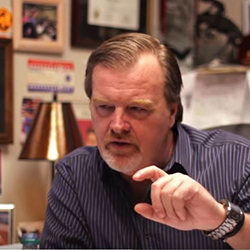Stewards of Place: The Role of Dialogue and Deliberation in Strengthening Colleges and Universities
Windy Y. Lawrence
University of Houston-Downtown
Zach Justus
California State University, Chico
Leah A. Murray
Weber State University
Barbara A. Brown
Clemson University
Author Note
Windy Y. Lawrence, Department of Arts and Humanities, Center for Public Deliberation, University of Houston-Downtown; Zach Justus, Department of Communication Arts and Sciences, First-Year Experience Program, California State University, Chico; Leah A. Murray, Department of Political Science and Philosophy, Center for Community Engaged Learning, Weber State University; Barbara A. Brown, Clemson Extension Service, Clemson University.
Correspondence regarding this article should be addressed to Windy Y. Lawrence, Associate Professor and Co-Founder Director, Center for Public Deliberation, University of Houston-Downtown, Department of Arts and Humanities, One Main Street, Room 1017-S, Houston, Texas 77002. Phone: (713) 398-4313. E-mail: lawrencew@uhd.edu
Abstract
In 2014, the American Association of State Colleges and Universities (AASCU) produced a sequel monograph, Stewards of Place II, which followed up on and extended the learnings about community engagement from the preceding report— Stepping Forward as Stewards of Place—published over a decade earlier. This article examines some of AASCU’s learnings over the past 10 years about the important role of colleges and universities as stewards of place. Specifically, the authors contend that dialogue and deliberation are key approaches for strengthening the position of colleges and universities as stewards of place. The article defines dialogue and deliberation, discusses five main reasons the authors believe dialogue and deliberation can strengthen colleges and universities’ function as stewards of place, highlights four case studies that illustrate how dialogue and deliberation are currently being utilized on campuses, and considers further implications of this work.
Keywords: dialogue, deliberation
Stewards of Place: The Role of Dialogue and Deliberation in Strengthening Colleges and Universities
In 2002, the American Association of State Colleges and Universities (AASCU) published a seminal monograph, Stepping Forward as Stewards of Place, in which the organization laid out the challenges, argued the importance of, and outlined its recommendations for public engagement. “The publicly engaged institution,” the report explained, “is fully committed to direct, two-way interaction with communities and other external constituencies through the development, exchange, and application of knowledge, information, and expertise for mutual benefit” (AASCU, 2002, p. 9). Years later, Muriel Howard highlighted the importance of introducing the term “stewards of place,” as it “captured the essence of the unique role that our institutions play in the life of their communities and regions” (AASCU, in press, p. 1). Since 2002, AASCU has worked to operationalize the idea of stewards of place. Most notably, in 2005, the Carnegie Foundation for the Advancement of Teaching brought more intellectual grounding to the concept by creating a “classification scheme” that “highlights the work of campuses committed to partnerships with their communities” (AASCU, in press, p. 1). In 2014, AASCU produced a sequel monograph, Stewards of Place II, which “contributes enormous texture and nuance to our understanding of how to go about the work of engaging with our communities” (AASCU, in press, p. 2). In this article, we examine some of AASCU’s learnings over the last decade about the important role colleges and universities play as stewards of place. Specifically, we contend that dialogue and deliberation are key approaches for strengthening position of higher education institutions as stewards of place. This article will define dialogue and deliberation, discuss five main reasons we believe dialogue and deliberation can strengthen colleges and universities’ positions as stewards of place, explore four case studies that illustrate how dialogue and deliberation are currently being utilized on campuses, and, finally, consider further implications of this work.
Defining Dialogue and Deliberation
Over the last few decades, an affiliation of scholars, practitioners, civic entrepreneurs, community members, local groups, and national and international community organizations have engaged in a “deliberative democracy movement” (Carcasson, 2011, p. 4) in order to bring more democratic dialogue and deliberation to communities. The National Coalition for Dialogue and Deliberation (NCDD) defines dialogue as “a process that allows people, usually in small groups, to share their perspectives and experiences with one another about difficult issues we tend to just debate about or avoid entirely” (NCDD, n.d.). The NCDD (n.d.) defines deliberation as:
a closely related process [to dialogue] with a different emphasis. Deliberation emphasizes the use of logic and reasoning to make better decisions. Decisions about important public issues like health care and immigration are too often made through the use of power or coercion rather than a sound decision-making process that involves all parties and explores all options.
From the classroom to the board room, many individuals and groups are increasingly “utilizing dialogue and deliberation in order to tackle issues and conflicts in new ways” (NCDD, n.d.). These new ways “enable people to share power effectively with each other and with those in power” rather than “[leaving] people feeling overpowered and frustrated” (NCDD, n.d.). In addition to the many new venues in which dialogue and deliberation are being utilized, colleges and universities are increasingly creating spaces for such communication experiences.
As the authors of Stewards of Place II explain, colleges and universities play an integral role in the community as stewards of place. Specifically, AASCU outlines five recommendations for an institution of higher education to become a steward of place, including enacting partnerships with the community that “honor reciprocity,” continuing strengthening faculty award systems with community engagement, developing benchmarks for the improvement of local K-12 systems, committing to regional economic development, and developing “all public engagement as global public engagement,” thus recognizing that “the local is global and the global is local” (pp. 9-10). AASCU describes the key factors that characterize colleges and universities as stewards of place, including an emphasis on integrating expertise instead of specializing and differentiating, a shift away from traditional hierarchical cultures that place faculty expertise above all in the university and community to a more collaborative epistemology, a focus on building inclusion into university structures, a movement away from traditional silos and academic walls, and an appreciation for the new and profound role technology plays in how individuals engage with each other (pp. 43-48). Given this position, we think it is critical that colleges and universities “understand and recommit to the centrality” of dialogue and deliberation “as a valued set of principles and practices”; promote “democratic principles and practice”; and model democracy “in institutional governance and decision-making processes” (Thomas, 2010, p. 6).
For example, Diana Muntz (2006) wrote about the tensions between promoting a society with activist citizens and promoting one imputed with tolerance and respect for differences of opinion. Though she agreed that deliberation has many benefits—including increased tolerance—she warned that talking with others with whom one disagrees (i.e., hearing the other side) can decrease one’s motivations to vote and to participate in civic groups, and increase the time it takes to decide for which candidate to vote. In spite of these criticisms, we contend that dialogue and deliberation are essential tools for strengthening colleges’ and universities’ position as stewards of place because such tools contribute to the generation of democratic knowledge, help uncover resources, transcend “academic silos,” allow for universities to connect the local with the global, and serve as a means by which to model “democratic learning.” We advance our four case studies—the University of Houston-Downtown Center for Public Deliberation; California State University, Chico; Weber State University; and Clemson University, Cooperative Extension Service, Sumter County Office— as exemplars of how dialogue and deliberation, when carefully practiced, can address many of the criticisms advanced against its practice.
Dialogue and deliberation help strengthen different kinds of democratic knowledge, which bolsters community policies and, in the context of higher education, strengthens student retention. For example, campus and political leaders often consider expertise an important form of knowledge in determining a particular path for policy. However, expertise cannot be the only component of policy formation, since this form of knowledge cannot completely inform leaders of a community’s values around an issue. By creating spaces for citizens to engage in dialogue and deliberation, leaders are able to understand more fully how facts can best intersect with a community’s values (Carcasson, 2011). Not only does democratic knowledge help inform community policy, the role of dialogue and deliberation in this type of “collaborative knowledge generation” also has potential to transform classroom and university cultures by emphasizing retention. Indeed, AASCU leaders “are making the connections between active and collaborative teaching and learning, collaborative knowledge generation, and student success” (AASCU, 2002, p. 11). In fact, 12 percent of AASCU campuses “identified the retention and success of undergraduates as a dimension of their community engagement strategy” (AASCU, in press, p. 19). Student retention and success are bolstered when universities create learning environments based on mutual respect, reciprocal learning, and a synthesis of theory with situated knowledge.
Dialogue and deliberation also aid in creating resources for both surrounding communities and the colleges and universities themselves. Stepping Forward identified the tremendous potential that students, faculty, staff, and alumni possess to enrich and contribute to the “economic, social, and cultural development of their respective regions” (AASCU, 2002, p. 11). Oftentimes, when communities come together to practice deliberation, partnerships and collaborations are formed in ways that would not have formed otherwise. However, when people are brought together to discover the common ground among them, new partnerships are often formed in order to solve existing community problems. These types of innovative partnerships often result in positive publicity for the university, improved perception of university degrees, money, grants, internships, opportunities for joint research, learning communities and networks, and more. In fact, one of the findings of the Stewards of Place II report was that many engaged scholarly products are being generated at AASCU universities. Yet, the report also indicated that “there were not many policy reports” (AASCU, in press, p. 26). Dialogue and deliberation comprise an ideal means by which faculty, students, or community members can offer policy reports to community leaders, introducing important perspectives for consideration when formulating policy.
Dialogue and deliberation also allow colleges and universities to connect their regional spaces with global spaces—to work both locally and globally. . According to the authors of Stewards of Place II: Universities are increasingly the place where the knowledge, skills and values of global citizenship are fostered. Also, increasingly, the communities of which AASCU campuses are a part are made up of individuals from across the globe. AASCU campuses should take the lead in developing all public engagement as global public engagement that includes intercultural learning outcomes, regardless of where the engagement takes place. Being a steward of place recognizes that the local is global and the global is local. Global engagement takes place in the neighborhoods surrounding the campus.
Dialogue and deliberation processes are effective mechanisms by which colleges and universities can tie the local with the global and thereby offer important perspectives on local issues, foster global awareness in their respective communities, and encourage a wider array of perspectives in local decision- making.
Finally, emphasizing dialogue and deliberation is critical for introducing “democratic learning” in colleges and universities and encouraging public participation. According to The Democracy Imperative (TDI), an organization dedicated to education for a more deliberative democracy, the role of “democratic learning/education” is to “describe experiences that teach the knowledge, principles, and practices valuable to a democracy as both a form of government and a culture” (Thomas, 2010). TDI differentiates “civic learning” from “democratic learning” by noting that civic learning, “while extremely valuable, [is] often apolitical or separate from learning for and about democratic governance and culture (e.g., volunteerism, service learning).” Thomas (2010) argued that quality engagement calls for:
- communication skills (written, oral, and intergroup and intercultural)
- collaborative decision-making and public reasoning skills (critical thinking and reflection, conflict management, team work, active listening)
- competent understanding and critical analysis of knowledge and information (research skills, evaluating the quality of arguments)
- civic literacy (the history of American democracy, understanding of core Constitutional ideals, government structures and operations)
- personal integrity and a sense of public purpose. (p. 4)
Notably, the learning outcomes needed for democratic learning intersect with the 21st-century skills that students need to hone. When an institution of higher education takes seriously its responsibility as a steward of place, it must also, by implication, contribute to a “democratic culture” by providing opportunities for internal/external communities to engage in “democratic learning.” Public participation is defined as the activities people take on to incorporate their beliefs into public decision making (Nabatchi & Leighninger, 2015). Deliberative democracy events undertaken on campuses help to develop a citizenry that can publicly participate.
Further, colleges and universities are part of, not separate from, the communities they serve and within which they are situated. As such, it is important that the students whom the campuses serve are seen as both part of and the future leaders of the surrounding community. Colleges and universities must attune themselves to the development of students as stewards within their surrounding communities in order to strengthen democracy. Domagal-Goldman (AASCU, in press) explains that:
stewardship of place … is evident not only in the direct community-based efforts of campus stakeholders, but also in the cultivation of students as the next generation of stewards of communities in which they settle and live out their personal and professional lives. (p. 3)
Deliberation and dialogue are an ideal mechanism through which democratic learning can be used to model democratic learning at colleges and universities. After all, democratic learning is often best taught as an experience rather than as a one-way lecture. The following case studies exemplify the ways in which deliberative civic engagement (Nabatchi et al., 2012) can work to strengthen colleges’ and universities’ positions as stewards of place.
University of Houston-Downtown Center for Public Deliberation
Since its founding in 2008, the University of Houston-Downtown Center for Public Deliberation (UHD CPD) has partnered with many groups and organizations in the community. The Center is a case study that demonstrates how dialogue and deliberation practiced within universities and communities contributes to the generation of democratic learning, which in turn supports community policies and strengthens student retention.
In 2007, UHD began working with Achieving the Dream (ATD), a national, multi-year initiative focusing on students who have traditionally faced significant barriers to success, including students of color and low-‐income students. In 2008, ATD partnered with UHD CPD, which contributed its knowledge and resources about using dialogue and deliberation, to create opportunities for more people in the community to discuss issues surrounding college success. At that time, there was a good deal of disagreement within the UHD community about the immediate role of the institution in helping underprepared students and about the broader role of UHD in addressing the achievement gap in Houston and throughout Texas. What responsibility do UHD faculty and staff have in helping students who are not ready for college? What should the UHD community do about the achievement gap in Houston? The perspectives of the entire community—part-‐ and full-time faculty, staff, students, parents, alumni, donors, employers, business members, and other community members of Houston—were vital. Process expertise was critical at this point because dialogue and deliberation were needed to facilitate some common ground among members of the community about mission and approaches that would meaningfully impact the lives of Houston citizens.
In the summer of 2008, UHD CPD hosted a deliberation, modeled on the National Issues Forum, in order to determine whether the community would welcome this deliberative form of engagement. UHD CPD adapted the NIF “achievement gap” issue guide by holding multiple focus groups with staff, administrators, and students in an effort to localize the guide. Fifty-one attendees participated in this one-‐time event. One of the outcomes of the deliberation was a request from the participants for more opportunities to actively help college students achieve the dream of a college education.
In January 2009, in response to the overwhelming success and feedback from the first forum, ATD and UHD CPD launched the Achieving the Dream Dialogue-‐to-‐Action Circles Initiative, based on an Everyday Democracy approach to dialogue and deliberation, which included a four-day (eight-hour) dialogue and deliberation involving 80 diverse members of UHD and the surrounding Houston area. The deliberation ended with a separate action forum, to which 200 members of UHD and the surrounding community—including many administrators and a former UHD president—showed up to listen to the outcomes of the groups’ deliberations and to take a “range vote” on their opinions about UHD’s priorities around retaining students and helping them achieve the dream of a college education.
Most importantly, the month-long deliberations generated tremendous democratic learning regarding the barriers and bridges to college student success that impacted UHD policy. The deliberative forums were significant in that they fostered new ways of framing and responding to issues of college success. Several key themes emerged reflecting the complex set of ideas, relationships, and behaviors that influence conditions and outcomes for college students. These critical themes included lack of school pride within the UHD community, lack of connection with the external community, challenges with advising, lack of responsibility for students’ own individual success, and a lack of awareness about student challenges. Additionally, the director of UHD CPD, along with student associates, presented a report to the newly hired UHD President and the Executive Council that was written to help administrators set the best policies for the university concerning student success.
The format of the forums (and the relationships at the beginning of the forums with the former UHD president) created new kinds of democratic knowledge about who could assist in improving student success—from expanding understandings that administrators were the ones responsible to broadening the recognition that many citizens had leadership roles to play. In fact, in response to these issues, the community voted to prioritize action in five significant ways, one of which was to build a student lounge to encourage a better “community of learning and networking” for students at UHD. Two years later, after monthly meetings organized by a UHD staff member in conjunction with UHD students, faculty, and administrators, the student lounge was built, despite previous conversations that had concluded that there was no space for a lounge, that it was too expensive, and that it was not a priority.
The Achieving the Dream Dialogue-‐to-‐Action Circles Initiative also raised awareness about the powerful difference that community-based resources, organizations, and individuals, working collaboratively and intentionally, can have on the retention of college students. One student, who had recently dropped out of UHD because of her difficulties adjusting to college, stated that she wished she had known the professors participating in the forums because they were “actually interested in whether or not I succeed.” She went on to explain that her “desire to learn bloomed” during the deliberation because she realized “that professors were concerned with her success.” Clearly, faculty, staff, students, and community members are increasingly looking to each other and asking, “How can we talk and work better together to help our students succeed?” Dialogue and deliberation offer colleges and universities important processes by which to think about the connection between democratic knowledge and student retention. Indeed, when higher education institutions privilege communication models that create productive relationships, many in the community stand to gain from these renewed forms of engagement.
California State University, Chico’s First-Year Experience Program
The First-Year Experience (FYE) program at California State University (CSU), Chico has been charged with helping students transition to university life—a typical goal among FYE programs. What makes this program unique is that the strategy for facilitating this transition centers on the creation of public spheres in first-year classrooms, requiring students to engage in dialogue with each other, the broader university, and the surrounding community. This strategy has succeeded in increasing persistence from students’ first and second years, increasing academic engagement, and increasing civic engagement. While the results of the FYE program are explained in detail elsewhere (http://www.csuchico.edu/fye/toolkit/assessment/index.shtml), our focus here is on an additional benefit of the program which has been instrumental in its implementation and expansion—the creation of resources for the campus and the external community. The program serves as a testament to the power of dialogue and deliberation between the campus and the community to create resources such as financial support, publicity, and productive relationships. This brief study outlines the programs including their specific successes.
The FYE program relies on a civic engagement model that puts students in direct dialogue with community leaders. In the Town Hall section of the program (embedded in CSU, Chico’s introductory Political Science course) community members, including activists, city council members, the district attorney, university administrators, and policy experts, are invited to campus to engage in structured and facilitated dialogue with students. After participating in this section, students often report that they feel their opinions were valued for the first time. In the Great Debate section (embedded in the required oral communication courses), a similar set of community members engage with students at the city council chambers and other areas in the community in events focusing on a specific policy topic. As a result of this experience, students often remark that they feel more prepared to participate in the political process. Both sections have been received positively by the campus and the community.
The documented success of the Town Hall section has helped raise the profile of CSU, Chico to a national level as it was prominently mentioned in the White House-commissioned white paper “A Crucible Moment” (Civic Learning and Democratic Engagement National Task Force, 2011). The early success of the Town Hall section also allowed the FYE program to secure external support from the Keck Foundation and a number of other funders. These successes have become sources of pride for the university administration and helped the institution to successfully navigate a period of intense budget scrutiny during the economic downturn.
The Great Debate section is relatively new, with the first event running in the spring of 2010. Its rapid growth—from 300 students in the first iteration to over 2,000 per semester in the current model—is due partially to the high profile the event has gained in the community. The very first event comprised an evening debate about marijuana that was covered extensively in local news. Subsequent events have been featured on the front page of the local paper (Mitchell, 2012) and attended by a state senator, a state assembly candidate, mayors, city council representatives, and delegations from other institutions.
Both events, and other smaller events run through the FYE program, were promoted through a specially created public relations intern position, helping to increase the positive visibility of the program and the university itself. Additionally, the promotion of the events at conferences and through existing contacts has led numerous two- and four-year institutions to adopt the programs in some form (Chang, 2013; Mosby, 2013). Student education has benefitted in that more and more students have engaged in public work. The community has benefitted through a richer relationship with the student population and the modeling of political deliberation based on dialogue rather than loud talking points. The university has benefitted from its new status as a model for other institutions seeking public outreach for first-year students. What we have come to understand over time is that all of these pieces must work together to create and build support for successful programs.
As the FYE program matures, CSU, Chico is beginning to see the development of student participants at the university and beyond. Students who were once participants in the program have taken their advocacy to workgroups on and off campus; they have moved on to actively engage in the political process. In the future, those who have participated in the events will be in a better position to affect substantial change at a variety of levels. It is our sincere belief that the model of positive deliberation and dialogue they engaged in as first-year students can provide them with an alternative model for engagement beyond the university.
Weber State University’s Talk of the Town
Weber State University and the City of Ogden, Utah, officially partnered in 2014 to bring democratic deliberation to the university’s students. This partnership occurred in conjunction with the College Town initiative, through which the university has endeavored to partner more intentionally with the City. Student body officers chose parking and transportation issues as the best possible topic for students to discuss with city council members and the mayor. This worked well for the City, which is undertaking a study regarding transit near the university. The Talk of the Town event (as it became known) modeled the conventions of a typical city council meeting, allowing students to see how democracy functions at a municipal level. The City coordinated outside speakers to ensure that the most appropriate people were at the table. The City invited representatives from the Utah Department of Transportation (UDOT) and the Utah Transit Authority (UTA). UTA is responsible for the FrontRunner commuter rail and public bus routes, while UDOT handles traffic signals on state roads and works in coordination with the City on traffic calming through the corridors. Additionally, the university administration attended, as did the vice president of the university student association. This forum allowed those who had the best available information to address student concerns during the deliberation.
Given the people in the room and at the table, the students learned the civic value of efficacy. Everyone in attendance had information about parking and transportation, could speak to those issues, and was available to answer students’ questions. Indeed, in a student-led dialogue, the point is to get student questions answered. Thus, when students asked about the dangerous roads around campus, speakers were not able to dodge the question or pass responsibility for the answer to others. The mayor explained what the City could do, and then UDOT and UTA were able to describe what their organizations could do. Many pieces of the dialogue led to UDOT and UTA officials taking notes on student queries and promising to examine the bus routes and walking routes mentioned during the dialogue. After the Talk of the Town event, students left feeling informed and as if they had made a difference (Johnson, 2014).
The Utah Transit Authority revealed that it would work with the City on an extensive transit study to review options for a new project in the Ogden area. During this Talk of the Town, students were invited to the conversation. The City collected student names and emails so that they could be invited to specific events and conversations as the transit study progressed. The mayor indicated that the study would consider various modes of transit, including streetcars, buses, and wave technology, as well as connections between the university and the downtown area as part of a larger vision for economic development. Oftentimes events on campus involve a speaker coming to campus and talking to students, perhaps answering questions, and then leaving. In the Talk of the Town, the City clearly demonstrated its desire to work with students, UDOT, UTA, and the university administration in its future planning efforts. Overall, those involved in the meeting indicated the value of this discussion and expressed a desire to continue similar future dialogues. Council Vice-Chair Caitlin Gochnour said:
We appreciate this and many other opportunities we have to collaborate with Weber State University. It was refreshing to see students who are so willing to engage and bring forward their concerns and ideas. (C. Gochnour, personal communication, April 12, 2014)
In addition to civic efficacy, students learned the importance of democratic deliberation. Weber State University Vice President for University Advancement Brad Mortensen spoke to the importance of deliberation for students and the university:
On a higher level, I thought the Talk of the Town demonstrated for students the need in real life to have a professional working relationship to address problems, concerns, and opportunities. Without a space for such dialogue to happen, problems can fester and opportunities can be squandered. (B. Mortensen, personal communication, April 13, 2014)
Again, through deliberation, students learn the civic value of maintaining a working relationship with people to address community issues. Rather than shouting reactively at elected City officials once a decision has been made, students learned that dialogue with City leaders was a more effective way to address and solve problems.
Ogden City Mayor Mike Caldwell also spoke directly to the deliberation between elected officials and students:
This forum provided a valuable opportunity for us to talk through some student questions about the City’s role in parking and transportation, and it also gave representatives from Utah Department of Transportation and Utah Transit Authority a chance to answer some of the questions WSU students have about how each of our organizations can collaborate to come up with solutions that might benefit students along with the many other commuters on our roadways. (M. Caldwell, personal communication, 2014)
Too often, faculty have conversations with students in an echo chamber: A faculty member sets up a panel, students attend and talk to the panelists, and then perhaps they reflect upon what they learned in a paper. However, it is vital to take the deliberation to the people who can actually make a difference. This increases the power of students in the eyes of elected officials; the students represent a voice that must be listened to. Students also develop a sense of efficacy. When they hear the mayor of the city in which the university is located answering their questions directly, they learn to believe that elected officials should answer them directly. In terms of civic engagement learning outcomes, nothing moves a student to action as quickly as scaffolding the conversation. Additionally, policy outcomes can happen as a result of such direct conversations. Too much of what happens on a campus occurs only in the range of awareness, not action. Deliberation—especially one that asks legislators, executives, and others in positions of power to affect student lives—brings to the table those who need to hear from each other.
Clemson University’s Local is Global & Global is Local
University and college dialogue and deliberation allow students and community members to connect the local with the global. Campus and Extension faculty and student deliberative dialogue outreach, as part of the actions of a steward of place, transforms theory and research into real-world experience. If community members and students engage together in deliberative dialogue forums in the local community and respond by helping people through intergenerational service-learning projects, those deliberating, designing, and delivering the service are likely to end up helping themselves, seeking more education and ultimately strengthening their civic abilities. For example, if one works to eliminate hunger in another country, one can learn how to do so in one’s own country. Conversely, if one learns about the causes of hunger and poverty in one’s own community, it can be easier to address issues of hunger and poverty in other countries.
In 1990, Clemson University received a Kellogg Foundation grant to establish Visions for Youth programs in eight counties in South Carolina. One of the participating counties, Sumter, intentionally integrated dialogue and deliberation in its Visions work with at-risk youth, as well as its decades-long Extension Service work with low-income and vulnerable audiences. Campus and Extension faculty, students, and community members used National Issues Forums (NIF) deliberative dialogue to identify community problems and solutions and to help develop forum-inspired community service projects, such as reducing poverty and alleviating hunger by working with community gardens, providing financial management training, and sharing ideas for low-cost, nutritious meals.
Today, the Clemson University Extension Service is focusing on agriculture and natural resources work. Previous successes engaging vulnerable audiences through deliberative dialogue and intergenerational service-learning could be applied to eliminating hunger and reducing extreme poverty locally and globally.
There are hungry people in all 3,144 counties in the United States, and the U.S. Department of Agriculture (USDA) has identified 21 states and one territory (Puerto Rico) as containing pockets of extreme poverty. South Carolina is one of these. More broadly, the United Nations Food and Agriculture Organization estimates that, worldwide, there are 870 million people who are hungry, and 98% of these people live in developing countries. Even though only 2% of the world’s hungry reside in the developed, industrialized world, hunger is prevalent throughout the U.S. Thus, poverty is at once a global and a local issue.
Consider Kenya and the wider East African Community (EAC), whose economies are grounded in agriculture, with millions of small farmers depending on cash crops for their livelihoods. Yet, low farm production yields and post- production losses, coupled with limited access to agricultural training, technologies, and finance, result in limited opportunity for eliminating hunger, reducing poverty, or achieving sustainable livelihoods in Kenya and the EAC— unless something changes.
Now consider the U.S. according to a June 10, 2013, report by Think Progress, an American news blog, children in rural communities are most likely to be food insecure (Pyke, 2013). Forty-three percent of America’s counties (1,352) are rural, but they have the highest rates of child food insecurity. According to the USDA, food insecurity occurs when “consistent access to adequate food is limited by a lack of money and other resources at times during the year” (Coleman- Jensen et al., 2012). (Acceptable shorthand terms for food insecurity are “hunger, or at risk of hunger” and “hungry, or facing the threat of hunger.”) Food insecurity can also accurately be described as “a financial juggling act, where sometimes the food ball gets dropped” (Osei et al., 2014).
Over the past 20 years, Clemson Extension’s grant-funded work (e.g., Kellogg Foundation, South Carolina Department of Education, USDA, Department of Defense, and Health and Human Services) with vulnerable, at-risk audiences has paired NIF deliberative dialogue with service-learning projects, resulting in improved skills, knowledge, and aspirations of the low-income participants involved.
Deliberation is an unbiased kind of talking that starts with people sharing their experiences related to a specific problem. Deliberative dialogue participants begin with what they hold most dear. They listen to one another, consider the costs and consequences of possible solutions to daunting problems, and explore with each other what they will or will not accept as a solution. Participants review unbiased facts, test ideas, weigh options, and balance tradeoffs to identify where their interests overlap.
Deliberation is a way to better understand and deal with problems more directly and sets the stage for participants to ultimately work together with their community toward a shared future. Deliberative dialogue forums thoroughly examine three or four possible solutions to a problem, often leading to follow-up community action. “Studies show that the patient practice of deliberation leads to change” (NIF, 2014).
Participation in deliberative dialogue forums has allowed youth to express their distrust of political, financial, media, and other institutions, while also declaring their commitment to future action. In a recent forum, for example, one middle school student said, “We need a food revolution to insure healthy food is served in our schools.” Similarly, a college student declared, “I am part of higher education, I can do something to teach K-12 grade students [agriculture and natural resources] science and STEM subjects.” Another youth said, “I am part of this community, I am a citizen too; just because I am a kid does not mean I don’t want my community to be a better place.” Trying to explain his view of America’s problems and its efforts to resolve these problems, one young man said, “America is all Jacked up.”
Examples of community action following deliberative dialogue forums include: local youth securing a teen center, efforts to curb underage drinking, and the opening of an after-school program. College students have engaged in forums on stopping underage and binge drinking, and community members and families have engaged in topics ranging from terrorism, health care, alcohol abuse, mental health, and making ends meet. They have developed programs to recognize the sacrifices of military, law enforcement officers, and others that work to ensure public safety. They have created prevention and wellness programs and methods to streamline local physical and mental health systems, and they have worked with municipal officials to create, for instance, a community garden through a community block grant that the citizens themselves wrote. University campus and Extension faculty and local community college faculty and students have helped secure and manage grants, provided science-based skills training, and served as stewards of place, providing leadership to civically engaged community youth and adults.
Conclusion
These case studies demonstrate the power that colleges and universities can leverage through the tools of deliberation and dialogue. This unique pedagogy resulted in civic learning and democratic engagement outcomes for students. Equally important, community members were able to see colleges and universities as viable partners for solving public problems.
References
American Association of State Colleges and Universities. (2002). Stepping forward as stewards of place. Washington, DC: Author. Retrieved from http://www.aascu.org/publications/stewardsofplace/
American Association of State Colleges and Universities. (In press). Stewards of place II [Monograph]. Washington, DC: Author.
Bobo, L., & Gilliam, F. D., Jr. (1994). Race, sociopolitical participation, and black empowerment. American Political Science Review, 84, 377-393.
Carcasson, M. (2011). Facilitating democracy through passionate impartiality: Communication studies programs and students should serve as local resources. Spectra, 47(3), 3-7.
Civic Learning and Democratic Engagement National Task Force. (2011). A crucible moment: College learning and democracy’s future. Washington, DC: U.S. Department of Education. Retrieved from http://www2.ed.gov/rschstat/research/pubs/college-learning-democracys- future/crucible-moment.pdf
Chang, N. (2013). Hayward’s “Great Debate” brings bilingual education to forefront. The Pioneer: California State University East Bay. Retrieved from http://thepioneeronline.com/19649/metro/haywards-great-debate- brings-bilingual-education-to-forefront/
Coleman-Jensen, A., Nord, M., Andrews, M., & Carlson, S. (2012). Household food security in the United States in 2011. Washington, DC: U.S. Department of Agriculture. Retrieved from http://www.ers.usda.gov/media/884525/err141.pdf
Johnson, R. (2014). Talk of the Town meeting discusses parking issues. The Signpost: Weber State University. Retrieved from http://www.wsusignpost.com/2014/02/11/talk-of-the-town-meeting- discusses-parking-issues/
Justus, Z. S., Wolf, C., Loker, W., Ertle, E., & Mattor, M. (2015). Assessing dialogue and deliberation. Dialogue and Deliberation among stewards of place. Washington D. C.: American Association of State Colleges and Universities.
Mitchell, L. (2012). “Great Debate” focuses on Occupy Chico. Chico Enterprise Record. Retrieved from http://www.chicoer.com/20120414/great-debate- focuses-on-occupy-chico
Mosby, C. (2013). The Great Debate and civic expo. Enjoy Magazine: Northern California Living. Retrieved from http://www.enjoymagazine.net/2013/10/30/17414/the-great-debate-and- civic-expo
Muntz, D. (2006). Hearing the Other Side: Deliberative Versus Participatory Democracy. Cambridge, Cambridge University Press.
Nabatchi, T., Gastil, J., Weiksner, G. M., & Leighninger, M. (2012). Democracy in motion. Oxford: Oxford University Press.
Nabatchi, T., & Leighninger, M. (2015). Public participation for 21st century democracy. Hoboken, NJ: Jossey-Bass.
National Coalition for Dialogue and Deliberation. (n.d.). Resource center: What are dialogue and deliberation? Retrieved from http://ncdd.org/rc/
National Issues Forums Institute. (2014). Deliberation. Retrieved from https://www.nifi.org/en/deliberation
Osei, M. K., Asante, M. D., Agyeman, A., Adebayo, M. D., & Adu-Dapaah, H. (2014). Plant breeding: A tool for achieving food sufficiency. Retrieved from https://www.researchgate.net/publication/268812380_Plant_Breeding_A_ Tool_for_Achieving_Food_Sufficiency
Putnam, R. D. (2000). Bowling alone. New York: Simon & Schuster.
Pyke, A. (2013). Report: Child hunger is concentrated in rural America.
Retrieved from http://thinkprogress.org/economy/2013/06/10/2132331/report-child- hunger-is-concentrated-in-rural-america/
Rosenstone, S. J., & Hansen, J. M. (1993). Mobilization, participation, and democracy in America. New York: Macmillan.
Teixeira, R. A. (1992). The disappearing American voter. Washington, DC: Brookings Institution.
Thomas, N. L. (2010). Why it is imperative to strengthen American democracy through study, dialogue, and change in higher education? Journal of Public Deliberation, 6(1), 1-14.
Author Biographies

Windy Y. Lawrence, Ph.D., is an Associate Professor of Communication Studies at the University of Houston Downtown and the Founder and Director of The University of Houston – Downtown (UHD) Center for Public Deliberation (CPD). She has managed many projects at UHD CPD, including initiatives around college success and the rising cost of health care. Since 2002, she has worked with the university to form more collaborative relationships in the Houston community through research, student internships, and community outreach. She is published in various journals and has won multiple awards for her research, which examines the intersection of communication, democracy and social justice.

Zach Justus, Ph. D., is an Assistant Professor of Communication Studies and the coordinator of the Chico Great Debate at CSU, Chico. His research focuses on public deliberation of controversial issues in their most civil and uncivil forms. Recently he has been recognized for his work in the classroom and in the community with teaching awards from CSU, Chico, the Chico Rotary, and the CSU, Chancellor’s Office.

Leah A. Murray, Ph. D., is an Associate Professor of Political Science and the co-coordinator for the American Democracy Project at Weber State University. She has recently co-authored a piece “Tea for Only Two: The Ousting of Utah Senator Robert Bennett” in Tea Party Effects on the 2010 U.S. Senate Elections and published “A State-Centered Approach to Teaching Presidential Elections” in the Presidents and Executive Politics Section of the American Political Science Association PEP Report. Murray collaborates with colleagues to organize the Deliberative Democracy Day and Talk of the Town events at Weber State University every year.

Barbara A. Brown has a B.S. in social science, a M.A. in international relations with a political economy specialty, and a Graduate Certificate in international family and community studies. During the 1970’s she worked on energy conservation issues. In the 80’s she held a local corporate social responsibility position. Currently Brown is developing models of national security (Smart Power), which focuses on diplomacy, economic development, and security partnerships.


